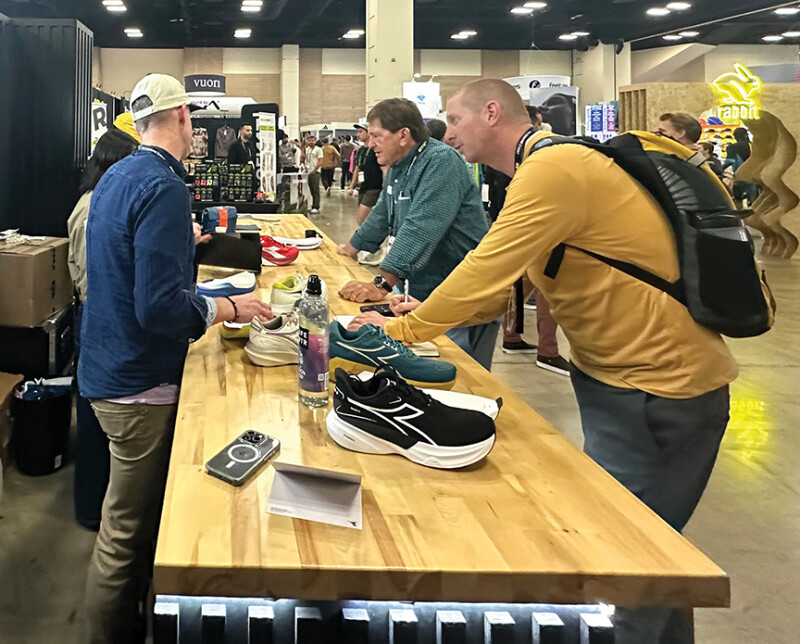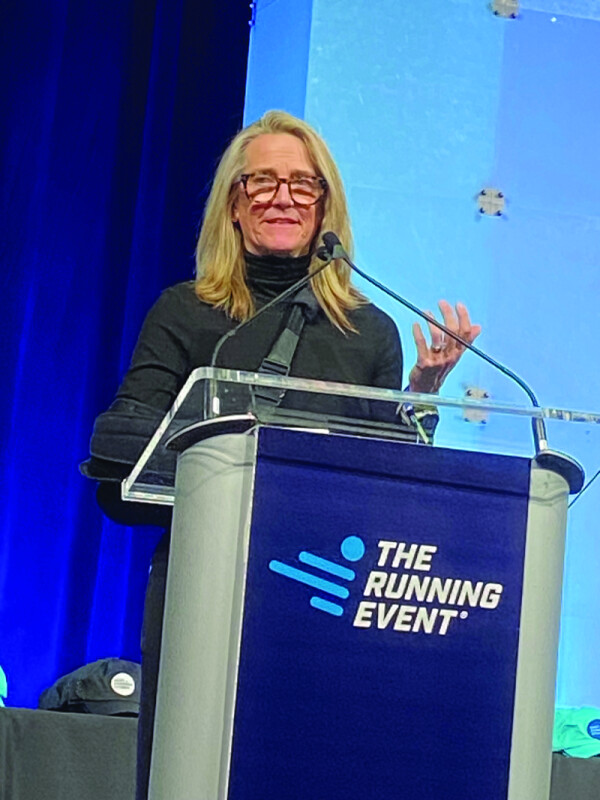H
ow important is a sustainability plan for run retailers? Shoot, you already know the answer. But let’s make sure we’re all on the same page with what this current buzzword actually means.
Sustainability conversations come in a zillion forms. Keep it basic and surfacy and you’re beating the same old dead horse about hiring, staff retention, customer acquisition, community connection and things like that.
But allow the topic to expand into modernity and suddenly it’s a litany of other things, too: A company’s non-financial performance, its driving purpose and clearly defined values and belief systems. Both the historical and modern discussions are crucial ponderings for a business’s ultimate success.
But the latter, now more than ever, needs to happen like yesterday. Why? Because our customers have become exponentially more thoughtful about where they want to put their money and time. What’s to blame? This tragic, yet transformative, global pandemic.
Trimming the Fat
In all its iterations, COVID-19 took the world’s status quo and flipped it on its head. One outcome of this interruption has been communal introspection. People are suddenly thinking longer and harder about what really matters. Everyone’s questioning their jobs, personal relationships, consumption of time and goods and darn near everything else. We’re trimming the fat and excluding the fluff in an attempt to live richer, more significant lives. The global community is deepening authentic connections and happily discarding the rest. This collective moment is unprecedented in our lifetimes — and it’s absolutely leaving a mark.
This examination is reinventing relationships to every planetary landscape, literal and figurative. Folks are solidifying beliefs, opinions, stances and taking time to scrutinize the nitty gritty in an effort to align their lives to their personal ethics. Sustainability is the en vogue parlance that encapsulates what this shift in perspective means. For this reason alone, sustainability needs to be on your radar.
Business journals are humming with mention of a sudden and exponential increase in a specific internet search value —“ethical brands.” People what to know more about a company’s beliefs before they swipe their card.
Other surveys have shown that people are willing to revamp their shopping habits to reduce environmental impact. Nobody can say for sure whether or not these trending topics will become the new consumer paradigm. But one thing’s for sure — such thoughtful filters are regularly being applied to each of your run specialty stores.
Like it or not, what you say, do, proclaim and energetically exude is being studied top to bottom by current and potential customers. Hope all you want that this close-looking is positively affecting the bottom line, but also know this — hope is not enough.
So, back to the opening question. How important is a sustainability plan for run retailers? In a word — extremely. And make no mistake, it always has been. But these days it’s the detail that either makes you wildly attractive or easy to eschew. And make no mistake, you are either one or the other. There’s nothing in between.
How can you immediately uptick your sustainability story? Take a look at the following three ways to run a smarter, better and more globally conscious business.
1. Publicly (Re)Commit To What You Do
Reaffirm your beliefs and then share your commitment to them with staff, community and brand partnerships to ensure they take hold. The more you do this, the more likely you are to attract like-minded people to your sphere who, in turn, are thrilled to have found you.
Example: Once you lock down why you do what you do and how you are committed to doing it, post a one-minute video on social media of you enthusiastically sharing it all. Don’t sweat the production quality. Concern yourself only with being honest and genuine. If you build it, they will come.
2. Consider A Regeneration Strategy
Product lifespan flow has always looked pretty much the same — Stores produce (order the goods), stores deliver (sell the goods), customers trash (use the goods) and then all is repeated. Can we change this to be more sustainable? Maybe we can instead incorporate the idea of “circular economics” wherein we decrease our dependence on landfills while still thriving.
Example: Partner with local non-profits that might benefit from used hand-me-downs. Don’t just limit this to shoes, either. Apparel and accessories are often left out of the donation conversation.
3. Scrutinize Your Value Chains
If you analyze departmental processes, odds are you’ll find details that can be changed for the better. Consider time, material resources, technology, fossil fuels, etc. as you break down essential processes then make minor changes to incrementally improve planetary health.
Example: Take buying, for example. Draw up everything a buyer does – from viewing lines to purchasing to merchandising – and ask if anything can be done to make things less environmentally impactful. Still using scads of paper? Stop! Still traveling to faraway places in multiple vehicles to see product lines that could be carpooled to or viewed virtually? Change! Wasting time with old tech because that’s how it’s always been done? Evolve! One minor tweak may not seem like much, but a collection of small, smart gestures always add up to greatness.
Going Above and Beyond
It’s no longer enough to have great service, a gorgeous shop, a sweet return policy or glitzy website. Gone are the days when your love of running and helping people is a sufficient foundation for a successful business model. Now, more than ever, you need to be shouting from the highest rooftops about who you are, what you do and why it doggone matters.
Your dedication to being sustainable will attract the right people — the sorts of people who will help ensure you’re around in another 10, 20 years. The sorts who know precisely how they fit into your business equation because — why? Because you told them so.
Shared ethics are a powerful driving force and COVID initiated a fresh awareness around what really matters. Whether that’s how well you treat employees, how you choose your community partners, why brands land on your racks or how willing you are to rethink and alter past patterns, your public sustainability story is driving brand loyalty.
Make sure you’re locking yours down with a quickness.






